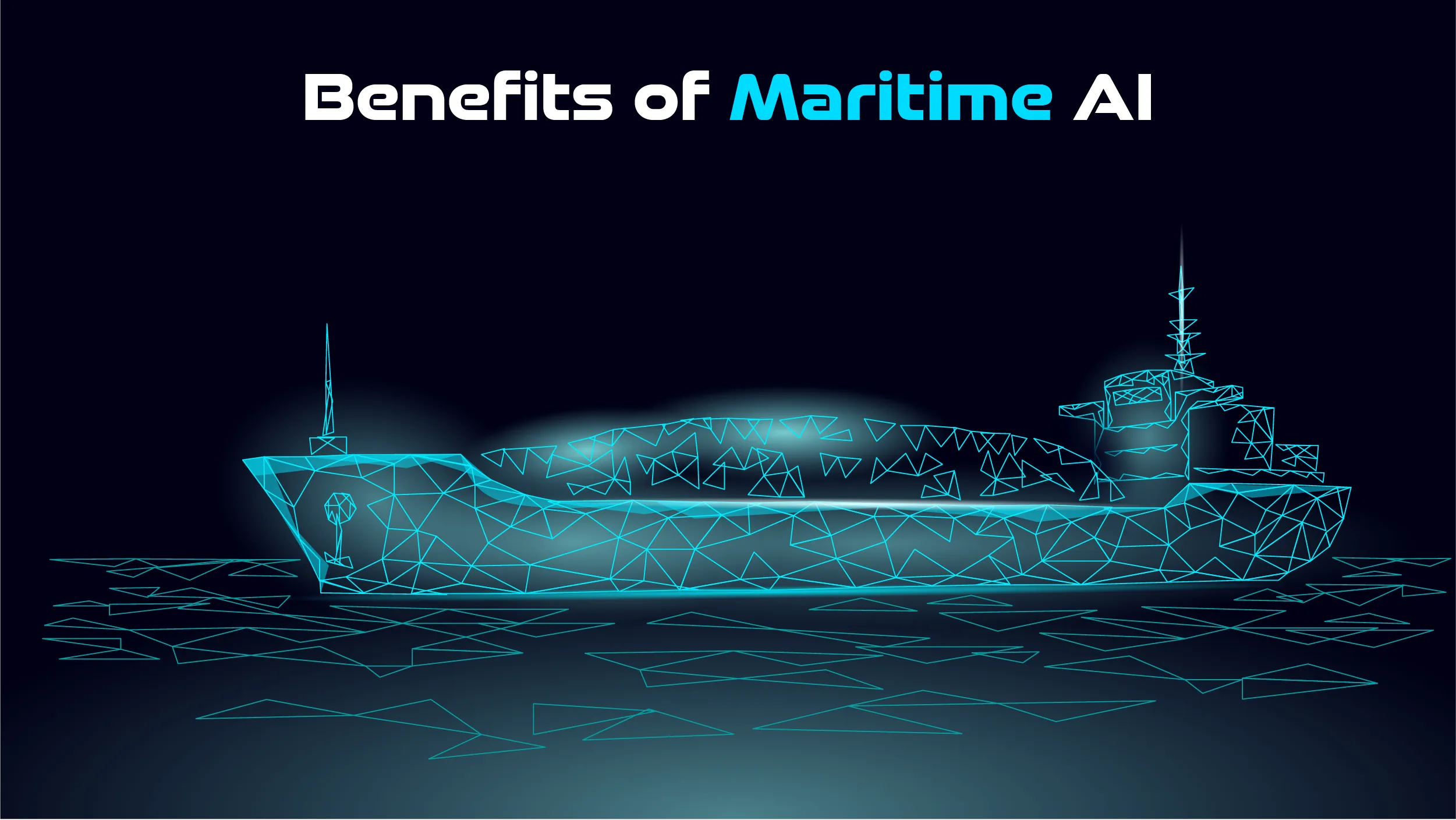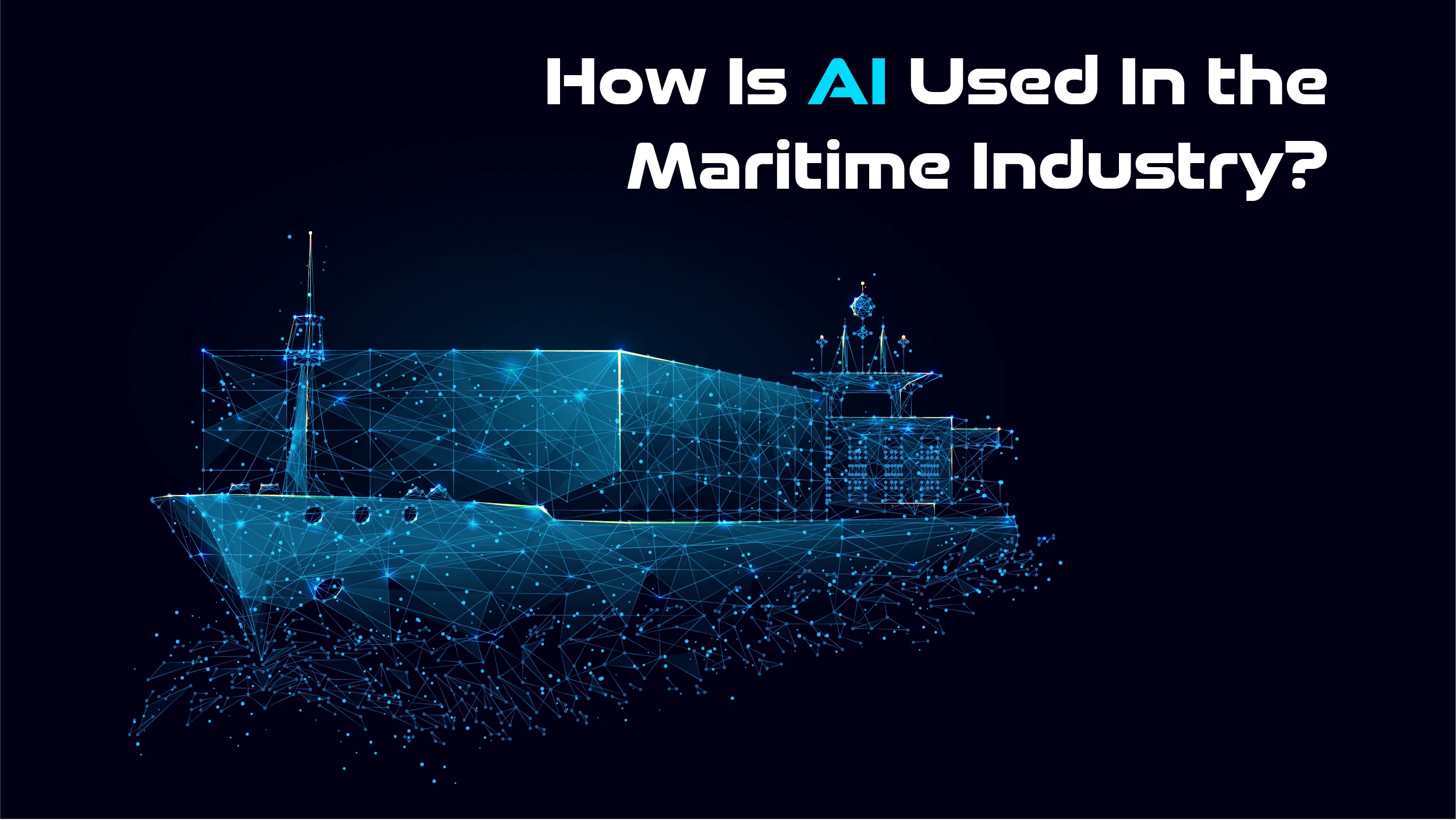Maritime AI could potentially be a game-changer in the future. But what is maritime and why is its integration with artificial intelligence important?
Sea transportation carries around 70% of world trade in value and 80% of trade volume. Given the tremendous amount of transportation carried out globally, it is essential to streamline and advance maritime activities.
Additionally, AI is finding applications in almost every industry. 83% of organizations state that AI is a major priority in their business strategies. 77% of enterprises either utilize or are looking to use AI in their operations. This article explains everything about maritime artificial intelligence.
What Is Maritime AI?
Maritime AI means the application of AI technology in maritime activities. Maritime involves human activities and industries related to the sea. While marine means natural aspects of the sea.
Maritime AI uses artificial intelligence algorithms and machine learning techniques to assess data and make better decisions. This is to ensure optimized vessel operations, safety, efficiency, etc.
Benefits of Maritime AI

- Efficient Shipping Operations: Maritime AI analyzes data on port congestion, transit times, vessel sizes, and cargo demand, helping logistics managers plan more effectively. This leads to optimized routes, reduced delays, and cost savings.
- Sanctions Compliance: AI-powered vessel tracking systems can identify entities at high risk for sanction violations before they are listed, helping shippers stay compliant with regulations and avoid penalties.
- Improved Safety: AI analyzes data from vessel sensors, cameras, and radars to detect potential threats like piracy or smuggling and predict equipment failures. This allows for proactive maintenance and enhances safety in shipping lanes.
- Optimized Operations: AI automates tasks and optimizes operations by analyzing data on traffic patterns, weather conditions, and vessel performance. This helps ships complete trips more efficiently, avoid heavily trafficked areas and reduce collision risks.
- Cost Reduction: By optimizing vessel operations and automating tasks, Maritime AI reduces costs in the shipping sector. This includes cutting fuel consumption, streamlining container tracking, and managing the supply chain more efficiently.
- Enhanced Decision-Making: AI algorithms analyze large amounts of data, providing valuable insights for decision-making. This includes predicting maintenance needs, improving routing, and enhancing overall efficiency across the maritime ecosystem.
Also Read: Supplier Relationship Management (SRM): A Comprehensive Outlook for 2024
How Is AI Used In the Maritime Industry?

There may be a lot of room for integrating and applying AI to several facets of the commercial maritime shipping sector. Here are the top 6 ways.
1. Predictive Analytics for Efficient Maritime Operations
Predictive analytics sorts, categorizes, and spots trends in data. It’s useful for assessing invoices, suppliers, and purchasing data. It also helps with the ship’s planned maintenance systems. Reliable data can show average logistics costs for ports. Some ports have high administrative costs and vested interests. These costs often increase overall logistics charges. They may be overlooked when delivering ship supplies.
Sometimes, logistics costs exceed the delivered goods’ value. Predictive analytics can highlight these cost anomalies. Decision-makers can learn from these insights. Best practices are often not passed on to new employees. This results in repeated mistakes. A system helping decision-makers quickly is very effective.
2. Bridge Between Repairs and Supplier Value
Predictive analytics can track the service life of spare parts. This helps draw insights about maintenance practices and assess supplier quality. A robust system is needed to track part consumption in each machine and link it to specific purchase orders and suppliers. Currently, this task is time-consuming for shore-based superintendents.
Quick, synthesized purchasing and consumption data would be highly valuable. Over time, this aids in creating predictive assessments for next year’s maintenance and repair budget, saving significant time for shore-side personnel.
3. Autonomous Ships
Artificial intelligence can revolutionize the maritime industry by enabling autonomous ships to navigate, dock, and make decisions independently, thereby enhancing safety and efficiency.
For example, AI-equipped autonomous ships can process real-time sensor data to adjust their course and speed, effectively avoiding collisions with other vessels, rocks, or obstacles.
4. Cargo Optimization
AI technology analyzes data on vessel stability, cargo weight, volume, and port infrastructure to improve cargo loading and unloading. AI promotes appropriate cargo distribution, reduces accidents, and increases efficiency by evaluating real-time data on cargo volumes and vessel stability.
5. Risk Management
AI-driven risk management systems can aggregate and analyze data from various sources to identify and mitigate risks in the shipping industry, such as adverse weather, traffic congestion, and piracy. For instance, AI can use real-time weather data and traffic reports to help ships navigate around dangerous weather conditions or avoid high-traffic areas.
6. Fuel Consumption Modeling
AI is significantly improving the accuracy of fuel consumption estimates for vessels. As AI technologies advance, the ability to calculate and predict fuel consumption under various weather conditions and regions will become more precise. This will aid in selecting more efficient ships and managing contractual requirements.
Sailing With Maritime AI
The adoption of AI in the marine sector signals the beginning of a new era of productivity and security, but it also raises important issues that need to be addressed, including cybersecurity, employment displacement, and data privacy. Proactive methods for reskilling the workforce are crucial as AI-driven automation transforms maritime employment. In addition, maintaining security and trust requires protecting the enormous volumes of data that AI systems depend on.
Through the utilization of AI’s superior data analysis powers, the sector can transform decision-making and streamline processes. However, to fully realize maritime AI’s revolutionary promise for a more effective, safe, and sustainable future, a balanced strategy that takes into account ethical, social, and security consequences is necessary.




